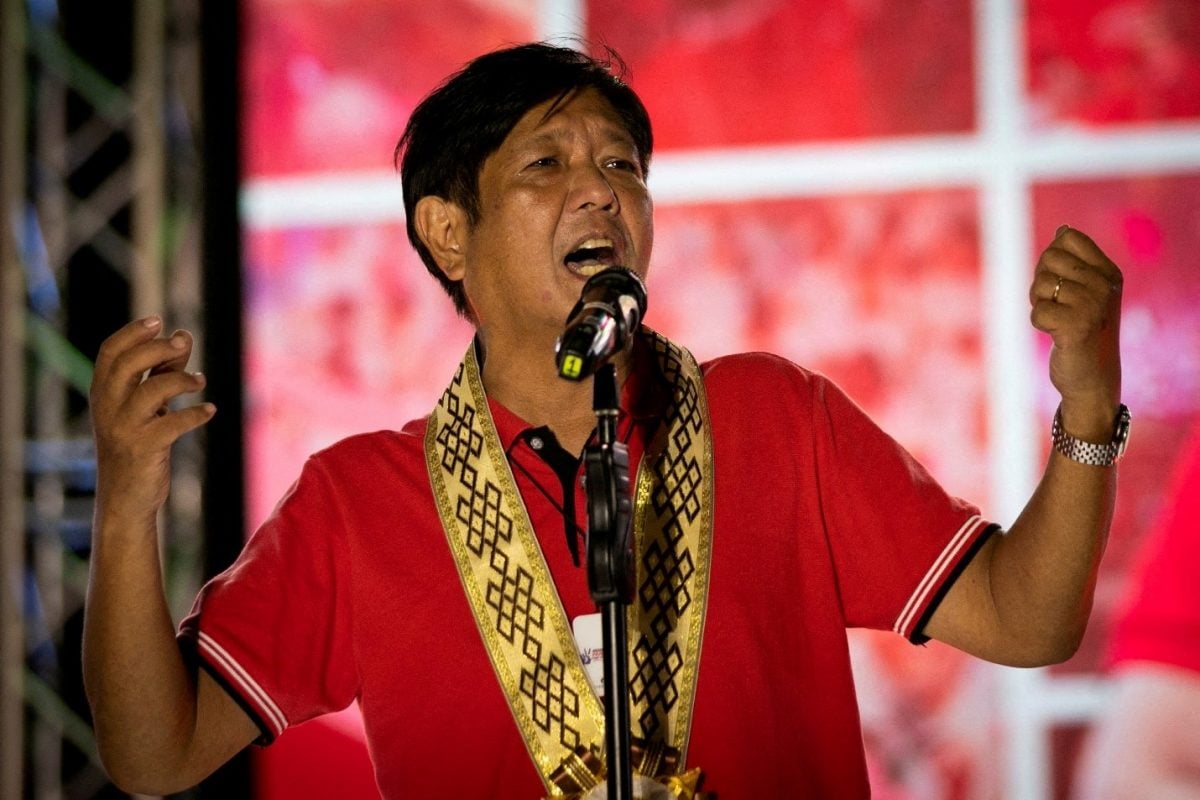MANILA, (Reuters) – Ferdinand Marcos Jr looked on course for a huge victory in the Philippines presidential election today, after an unofficial tally of two thirds of the votes showed the son of the notorious late dictator surging ahead of his nearest rival.
The massive lead bolsters the chances of a once unthinkable return to rule of the Marcos family, 36 years after its patriarch’s overthrow in a “people power” revolution and his family’s humiliating retreat into exile.
Marcos Jr had 21.7 million votes, more than double the 10.3 million votes for Leni Robredo, the vice president, with 66.1% of the number of eligible ballots counted, according to an unofficial tally by the Commission on Elections (COMELEC)
Marcos’s spokesperson, Vic Rodriguez, said Bongbong, as Marcos is popularly known, was not yet ready to talk about victory.
“It’s not over until it’s over,” he told CNN Philippines.
“Bongbong Marcos has never looked beyond May 9 and it’s still May 9. We are under expressed instruction from him not to lose focus and look beyond May 9.”
Despite its fall from grace, the Marcos family returned from exile in the 1990s and has since been a powerful force in politics, retaining its influence with vast wealth and far-reaching connections.
Marcos has served as a governor, congressman and senator, his sister, Imee, is currently a senator and mother Imelda, the influential power-broker and widow of the late dictator, served four terms in the House of Representatives.
Marcos, 64, has presented no real policy platform but his presidency is expected to provide continuity from outgoing leader Rodrigo Duterte, whose ruthless, strongman approach proved popular and helped him to consolidate power rapidly.
DISPUTING HISTORY
The results so far demonstrate the huge success of Marcos’s massive social media operation, which critics say has sought to discredit historical accounts of cronyism, plunder and brutality during the two-decade Marcos rule, about half of which was under martial law.
The Marcos family denies siphoning off billions of dollars of state wealth during its time at the helm of what its opponents say was one of Asia’s most famous kleptocracies. Many of Marcos’s supporters, born after the 1986 uprising, are convinced those past narratives were invented by his opponents.
Late on Monday as the unofficial votes were counted, a small group of supporters gathered outside the Marcos campaign headquarters, chanting “Marcos, Marcos, Marcos” ecstatically.
The early count indicates Marcos will avenge his loss to Robredo in the 2016 vice presidential election, a narrow defeat by just 200,000 votes that he sought unsuccessfully to overturn.
The two have a bitter rivalry and embody a political chasm that has existed more than four decades, with Robredo allied with the movement that toppled the elder Marcos.
About 65 million Filipinos were eligible to cast ballots on Monday to decide on the successor to Duterte after six years in power, plus thousands of other posts, from lawmakers and governors to city mayors and councillors.
COMELEC declared the election to have been “relatively peaceful” and documented 15 security incidents, including what police said was the killing of three members of a peacekeeping force near a polling station in the south.
Election Commissioner George Erwin Garcia said he was “overwhelmed’ by the number of voters flocking to polling centres despite the pandemic threat.
That surge caused long queues, exacerbated in some areas by malfunctions in 533 of the 106,000 counting machines being used, prompting concerns from candidates that COMELEC sought to assuage.
“Rest assured, those being reported by media are isolated cases and will not affect the integrity of our elections,” commissioner Marlon Casquejo told a news briefing.










